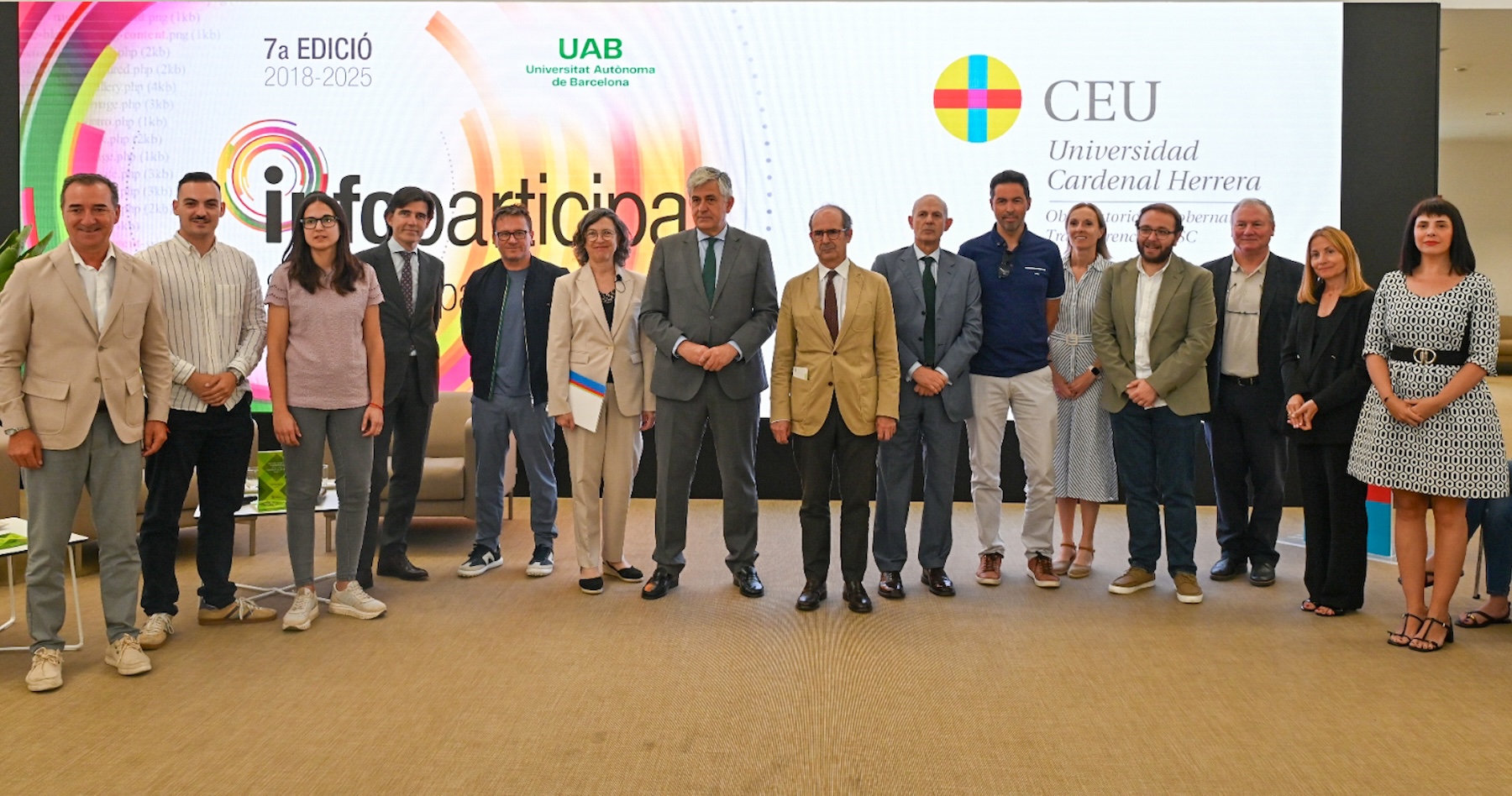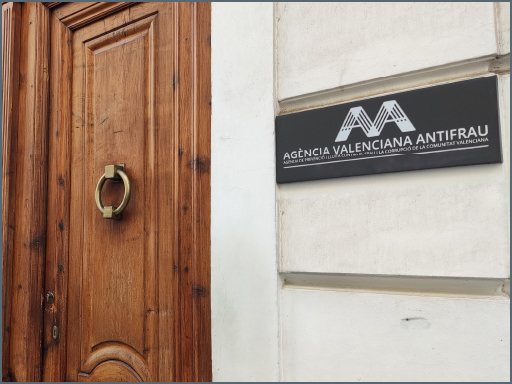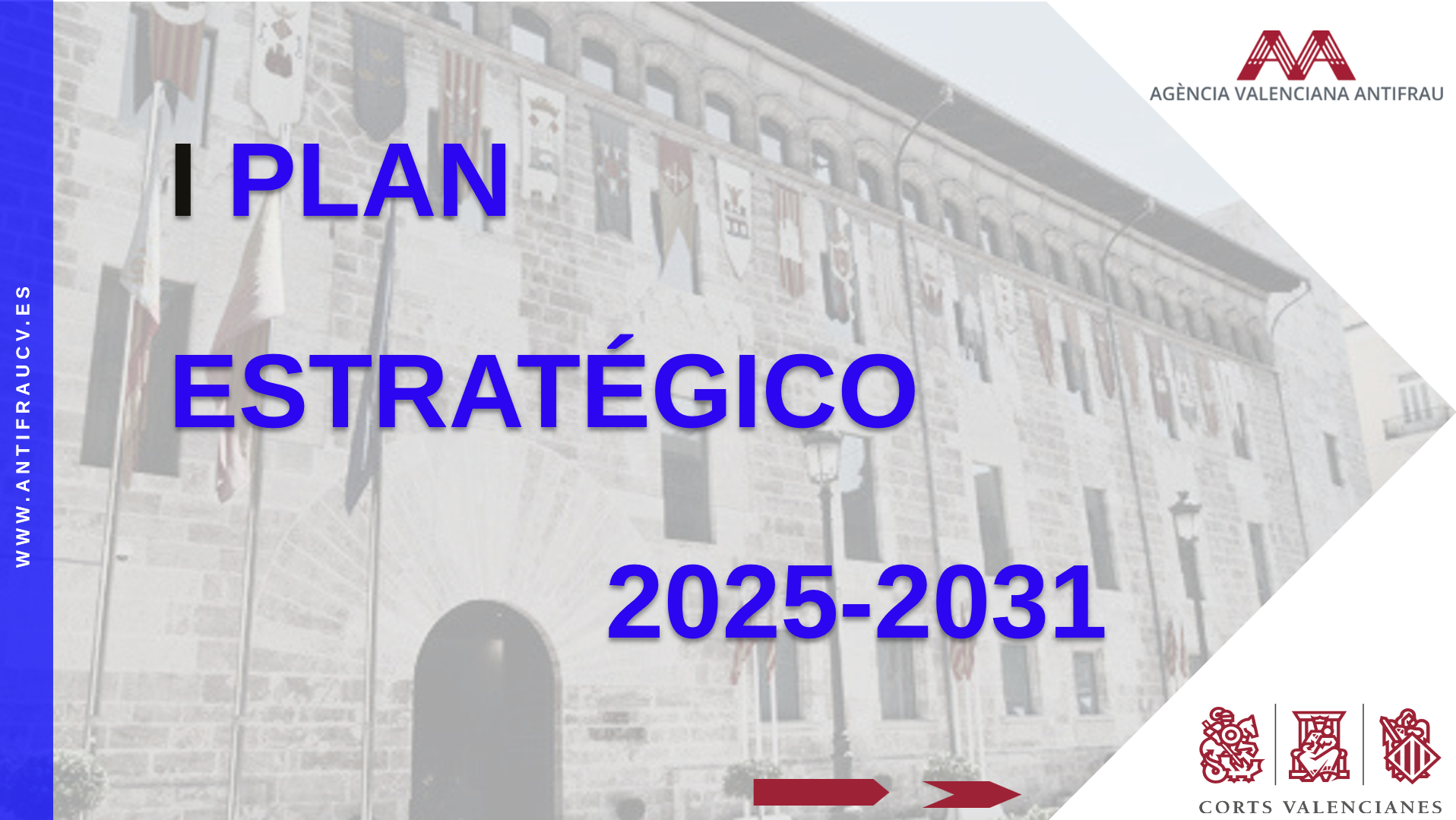The Valencian Anti-Fraud Agency participates in the Infoparticipa Seals 2024 award
València, 26 may 2025.- On Monday, May 26, the Infoparticipa Seals for transparency and participation in local public communication in the Valencian Community, corresponding to the year 2024, were awarded at CEU Cardenal Herrera University (CEU UCH). The municipalities of Gandia, Onda, València, Elx-Elche, Santa Pola, Gata de Gorgos, Dénia, Riba-roja de Túria, Alcalà de Xivert-Alcossebre, Tous, and Bicorp, as well as the provincial councils of Valencia, Alicante, and Castellón, met the required percentage of indicators over the past year to receive these recognitions for transparency, applying the Infoparticipa Map methodology.
This analysis is carried out annually by researchers from the Governance, Transparency and CSR Observatory of CEU UCH, and has been conducted for the past seven years.
The event, held at the university’s Auditorium on the Alfara del Patriarca campus, was presided over by CEU UCH rector Higinio Marín, Vice-Rector for Research and Transfer Alicia López Castellano, the Regional Secretary for Institutional Relations and Transparency of the Generalitat Valenciana, Santiago Lumbreras Peláez, and the Director of the Valencian Anti-Fraud Agency (AVAF), Eduardo Beut, who also presented the awards.
All details about the Infoparticipa Seals 2024 ceremony are available at the following link:
https://medios.uchceu.es/actualidad-ceu/la-ceu-uch-entrega-los-sellos-infoparticipa-a-once-ayuntamientos-valencianos-y-a-las-tres-diputaciones/




